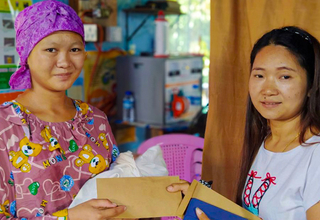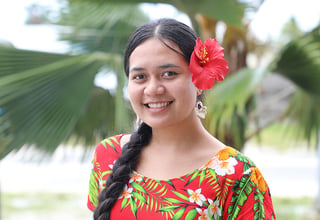Statement of UNFPA Executive Director, Dr. Babatunde Osotimehin, on The International Day for the Eradication of Poverty
The International Day for the Eradication of Poverty has special significance this year. Last month, the world community adopted an ambitious, universal agenda that will guide development over the next 15 years. The Sustainable Development Goals, which are at the heart of Agenda 2030, represent an entirely new level of ambition. Most notably, countries have committed to eradicating extreme poverty altogether.
To lift people out of poverty, countries will need stronger and better social protection systems. But to sustainably eradicate poverty, they will need to create many more jobs. By 2030 – the target year of the new development agenda – we will need to create 469 million new jobs. Approximately 40 per cent of these jobs need to be created in the world’s least developed countries, which currently account for only 1 per cent of global economic output.
Many young people entering the labour force in these countries are unable to find productive, paid employment. A majority find their first job in the informal economy – which captures an estimated 70 per cent of all employment in some countries. An estimated 35 per cent are living on less than one US dollar a day, according to the International Labour Organization.
Eradicating poverty will require sound economic policies that create decent jobs and ensure social protection, coupled with improvements in the human capital of young people to strengthen their employability.
An essential, but often neglected aspect of the development of human capital is the realization of sexual and reproductive health and reproductive rights for all.
Too many young girls are married off as child brides, too many become mothers as teenagers, too many suffer from violence and discrimination, too many drop out of school and too many are denied equal participation in the social, economic and political life of their countries.
The eradication of extreme poverty is inextricably linked to a healthy transition to adulthood for everyone, characterized by the protection of their human rights, including their reproductive rights, and a fair chance to pursue their dreams and live up to their potential.
Sexual and reproductive health care, including family planning and contraceptive services, enables women and adolescent girls to protect their health and choose the number, timing and spacing of their children. This empowers them to study, work and raise their families out of poverty.
The empowerment, education and employment of young people, particularly adolescent girls, is essential in order for them to be able to capitalize on their own potential, enrich their communities and help unleash a demographic dividend for their countries.
UNFPA, the United Nations Population Fund, remains committed to supporting the poorest and most vulnerable, empowering women and girls, facilitating the development of young people, and helping countries realize a demographic dividend. That is how we will end poverty and ensure that no one is left behind.




